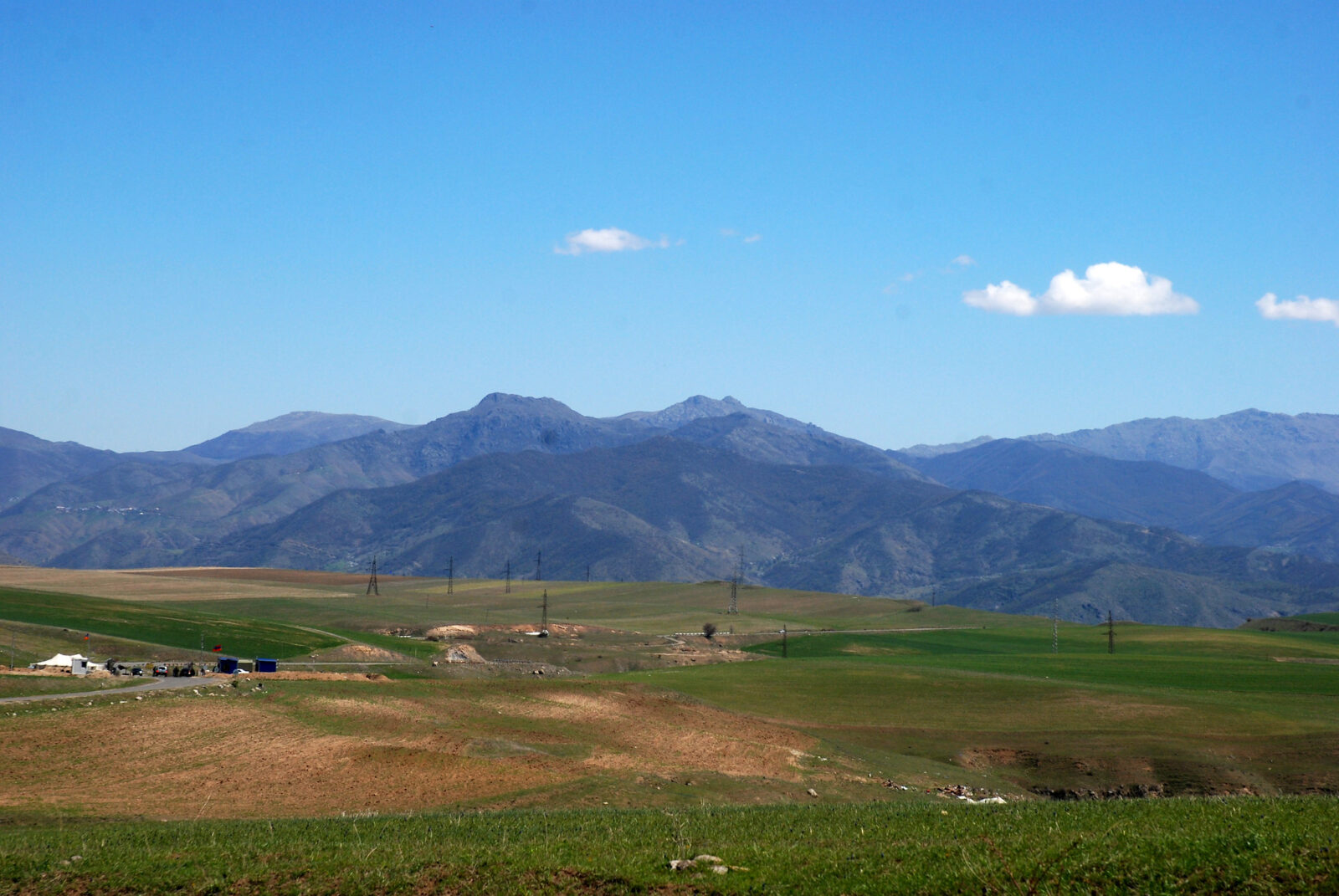Azerbaijan tightens blockade as Armenia calls for assistance
The situation in Nagorno-Karabakh still remains uncertain three years after the 2020 war. While Azerbaijan has enforced a blockade of the disputed territory, Armenia increasingly fears a renewed conflict. The international community must now act to bring both sides back to the negotiating table.
August 30, 2023 -
Mark Temnycky
-
Articles and Commentary

Lachin corridor on the road to Stepanakert. Photo: Jelger Groeneveld / flickr.com
Nagorno-Karabakh has once again caught the attention of international headlines as tensions between Armenia and Azerbaijan continue to flare. According to recent reports, Azerbaijan has yet to lift its blockade of Nagorno-Karabakh. For more than 200 days, Azerbaijani officials have blocked the Lachin Corridor, “the only road that links the … region to Armenia.” Ethnic Armenians are being forced to withdraw from the region, and those who wish to stay are being told that they must take up Azerbaijani citizenship. Additional reports have stated that the region is running out of food and fuel. There is also a medicine shortage. Unfortunately, no one knows when the blockade will end.
These events are just the latest developments in a series of ongoing quarrels between Armenia and Azerbaijan. For decades, the two countries have fought over this territory. While several ceasefires have been signed, they have been constantly violated, and thousands have perished throughout the ongoing conflict.
To counter these ongoing disputes, the European Union established a mission to Armenia. The programme seeks to “observe and report on the security situation along the Armenian side of the international border with Azerbaijan. It will contribute to human security in conflict-affected areas in Armenia and build confidence between Armenia and Azerbaijan”.
The mission officially launched in February 2023 but European officials have struggled to make an impact. For example, while the EU announced that it would send a delegation to observe and monitor the situation, the programme was swiftly rejected by Azerbaijan. To Azerbaijani officials, they viewed the EU mission as an opportunity for Armenia to “procrastinate on negotiations” over Nagorno-Karabakh. Azerbaijani leaders also see it as a “biased operation” as the programme discusses how it will protect Armenians in the region. It also does not include a mandate for “contain[ing] potential Armenian attacks or provocations against Azerbaijan”.
Meanwhile, the United States has also attempted to de-escalate the situation. In a recent statement issued by the Senate Foreign Relations Committee, the group stated that now was the time “for the US & its allies to exert pressure” on the Azerbaijani government to lift its blockade. US Senator Alex Padilla also introduced a resolution condemning Azerbaijan’s blockade of Nagorno-Karabakh. Finally, several senators have called on the Biden administration to impose sanctions on Azerbaijan in order to lift the blockade. Despite these condemnations and calls to action, very little has been done to force an end to the blockade.
Given these recent and unsuccessful attempts, Armenian authorities are now concerned that a new war is likely with Azerbaijan. In a recent statement issued by Armenian Prime Minister Nikol Pashinyan, the leader noted that “So long as a peace treaty has not been signed and such a treaty has not been ratified … a [new] war [with Azerbaijan] is very likely.”
It is therefore imperative that a deal be reached between Armenia and Azerbaijan. Russia and Turkey previously attempted mediation following the renewed fighting in 2020. While a ceasefire was implemented, it was immediately broken. Since then, tensions have flared between Armenian and Azerbaijani forces, and several people have been injured or killed. Furthermore, Russia and Turkey have become preoccupied with their own internal affairs, which have prevented them from serving in greater intermediary capacities. Russia’s illegal and unnecessary war in Ukraine has distracted the Russians from other international events, and Turkey’s ongoing economic crisis has prevented that country from serving in a greater role as well.
This leaves the EU and the United States with the important role of mitigating the situation. However, thus far both parties have failed to make an important impact. Given the rising stakes, it is crucial that both parties increase their involvement to try and broker a settlement between Armenia and Azerbaijan. They must change their strategies as previous attempts have failed. Sending millions of US dollars in financial and humanitarian assistance is helpful, but creating a format where Armenian and Azerbaijani officials can meet and speak willingly would be an essential step forward. The EU and the United States must also discuss long-term strategies with the Armenians and Azerbaijanis on how they will resolve the blockade, how they can provide assistance to those in need, and how they can ensure that the conflict does not flare up again after the conclusion of renewed discussions.
The globe is already preoccupied with the ongoing Russian invasion of Ukraine, and the international community is working hard to stop Russia’s war. The world is also carefully monitoring China’s involvement in Asia, fearful that the Chinese may perform a similar act in Taiwan. With the international community determined to prevent further international conflicts, and with the continued uncertainty of what lies ahead, it is therefore imperative that negotiations be agreed between Armenia and Azerbaijan. Otherwise, the globe might be faced with yet another international conflict.
Mark Temnycky is an accredited freelance journalist covering Eastern Europe and a nonresident fellow at the Atlantic Council’s Eurasia Center. He can be found on Twitter @MTemnycky
Please support New Eastern Europe's crowdfunding campaign. Donate by clicking on the button below.

































